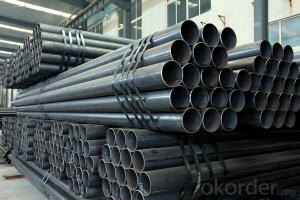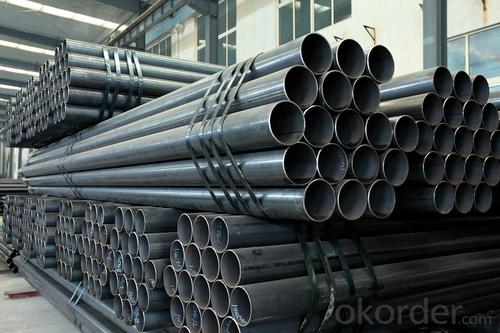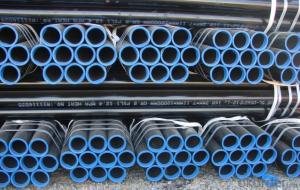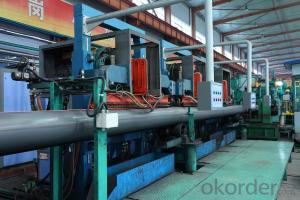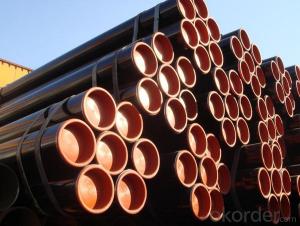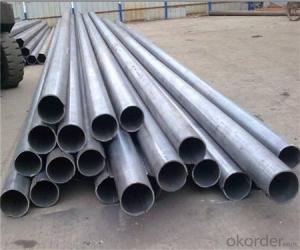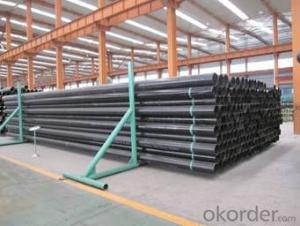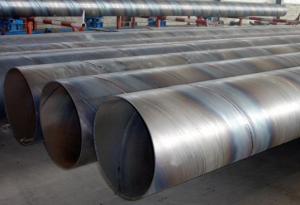ERW LINE PIPE
- Loading Port:
- China Main Port
- Payment Terms:
- TT OR LC
- Min Order Qty:
- -
- Supply Capability:
- -
OKorder Service Pledge
OKorder Financial Service
You Might Also Like
Product | BEST ERW CARBON STEEL PIPE API 5L GR.B | |
Specification | Section shape: round | |
Thickness: 4mm-16mm | ||
Outer diameter: 219mm-2020mm | ||
Standard | ASTM A252, BS1387,GB3091,ASTMA53, B36.10, BS EN1029, API 5L, GB/T9711 etc | |
Material | Q195, Q235, Q345; ASTM A53 GrA,GrB; STKM11,ST37,ST52, 16Mn,etc. | |
Fabrication | plain ends pipe,cutting threading, beveled, 3PE steel pipe, black and color painting, anti-rusting oilsteel pipe, varnish paintingsteel pipe, zinc-coating steel pipe, steel stamp, drilling, diameter reducing pipe etc. | |
Surface Treatment | 1. 3PE | |
2. PVC,black and color painting | ||
3. Transparent oil,anti-rust oil | ||
4. According to clients requirement | ||
Package | 1. Bundle | |
2. Bulk | ||
3. Plastic bags ,etc | ||
Min order | 10 tons, more quantity price will be lower | |
Payment terms | T/T, L/C at sight, western union etc. | |
Deliver time | Within 7-30 days after deposit, ASAP | |
Application | Construction,machine structure pipe, Agriculture equipment pipe, Water and gas pipe, Greenhouse pipe, Scaffolding pipe, Building material tube, Furniture tube, Low pressure fluid tube, Oil pipe, etc | |
Others | We can do special orders as customer’s requests. | |
We also can provide all kinds of steel hollow pipes. | ||
All the production process are made under the ISO9001:2008 strictly | ||
Business type | Manufacture and exporter |
- Q: How do steel pipes perform in corrosive environments?
- Steel pipes perform well in corrosive environments due to their inherent resistance to corrosion. Steel is a durable and strong material that can withstand exposure to various corrosive elements such as moisture, chemicals, and saltwater. Additionally, steel pipes can be further protected through coatings or linings to enhance their resistance to corrosion, making them a reliable choice for applications in corrosive environments.
- Q: What are the safety regulations for working with steel pipes?
- The safety regulations for working with steel pipes vary depending on the specific tasks involved, but some common regulations include wearing appropriate personal protective equipment (PPE) such as gloves, safety glasses, and steel-toed boots, ensuring proper ventilation in enclosed spaces, following proper lifting techniques to prevent back injuries, implementing proper fall protection measures when working at heights, and using caution when handling tools and equipment to prevent accidents and injuries. It is important to consult the relevant guidelines and regulations specific to your jurisdiction and industry to ensure compliance and promote a safe working environment.
- Q: What is the role of steel pipes in the telecommunications industry?
- Steel pipes play a crucial role in the telecommunications industry as they are used for the installation of underground and overhead telecommunication cables. These pipes provide protection and support to the cables, ensuring their safety and longevity. Additionally, steel pipes are also used in the construction of communication towers and infrastructure, making them an essential component in establishing and maintaining reliable telecommunications networks.
- Q: Can steel pipes be used for underwater applications?
- Yes, steel pipes can be used for underwater applications as they are known for their high strength, durability, and corrosion resistance, making them suitable for various underwater environments and industries such as offshore oil and gas, marine construction, and underwater pipelines.
- Q: How can galvanized steel tubes be painted on the surface?
- The market is commonly used in alkyd iron red primer, iron red epoxy primer are not suitable for galvanized parts, otherwise it is easy to fall off. It is important to point out that the saponification of the galvanized sheet with alcohol, acid and paint will result in the failure of the coating and the damage of the original zinc coating.
- Q: Are steel pipes suitable for transporting fluids?
- Yes, steel pipes are highly suitable for transporting fluids due to their durability, strength, and resistance to corrosion. They can safely and efficiently transport a wide range of fluids, including water, oil, gas, and chemicals, making them a popular choice in various industries such as oil and gas, water supply, and construction.
- Q: How are steel pipes classified according to their use?
- Steel pipes are classified according to their use based on factors such as their diameter, wall thickness, and the intended application.
- Q: How do you transport and store steel pipes?
- Steel pipes are typically transported using trucks, railcars, or ships. They are stored in designated areas or warehouses, either vertically or horizontally depending on their size and weight. It is important to ensure proper packaging, lifting equipment, and securing methods during transport to prevent damage or accidents. Additionally, storing steel pipes in dry, well-ventilated areas away from moisture and corrosive substances helps maintain their quality and longevity.
- Q: What are the different types of steel pipe supports for overhead piping?
- Some of the different types of steel pipe supports for overhead piping include clevis hangers, beam clamps, pipe straps, and pipe rollers. Clevis hangers are used to suspend the pipe from a beam or other structural element. Beam clamps attach the pipe to a beam or other support structure. Pipe straps are used to secure the pipe to a wall or other surface. Pipe rollers allow the pipe to move freely while providing support.
- Q: What are the different types of steel pipe coatings for offshore applications?
- There are several types of steel pipe coatings that are commonly used for offshore applications. Some of the most common types include fusion bonded epoxy (FBE) coating, three-layer polyethylene (3LPE) coating, and three-layer polypropylene (3LPP) coating. FBE coating provides excellent corrosion resistance and is often used in subsea pipelines. 3LPE coating combines fusion bonded epoxy with an adhesive and a high-density polyethylene layer, offering superior mechanical protection and corrosion resistance. 3LPP coating, on the other hand, combines fusion bonded epoxy with an adhesive and a polypropylene layer, providing enhanced resistance to high temperatures and chemicals. These coatings help to protect steel pipes from corrosion, abrasion, and other environmental factors, ensuring their durability in offshore environments.
Send your message to us
ERW LINE PIPE
- Loading Port:
- China Main Port
- Payment Terms:
- TT OR LC
- Min Order Qty:
- -
- Supply Capability:
- -
OKorder Service Pledge
OKorder Financial Service
Similar products
Hot products
Hot Searches
Related keywords
